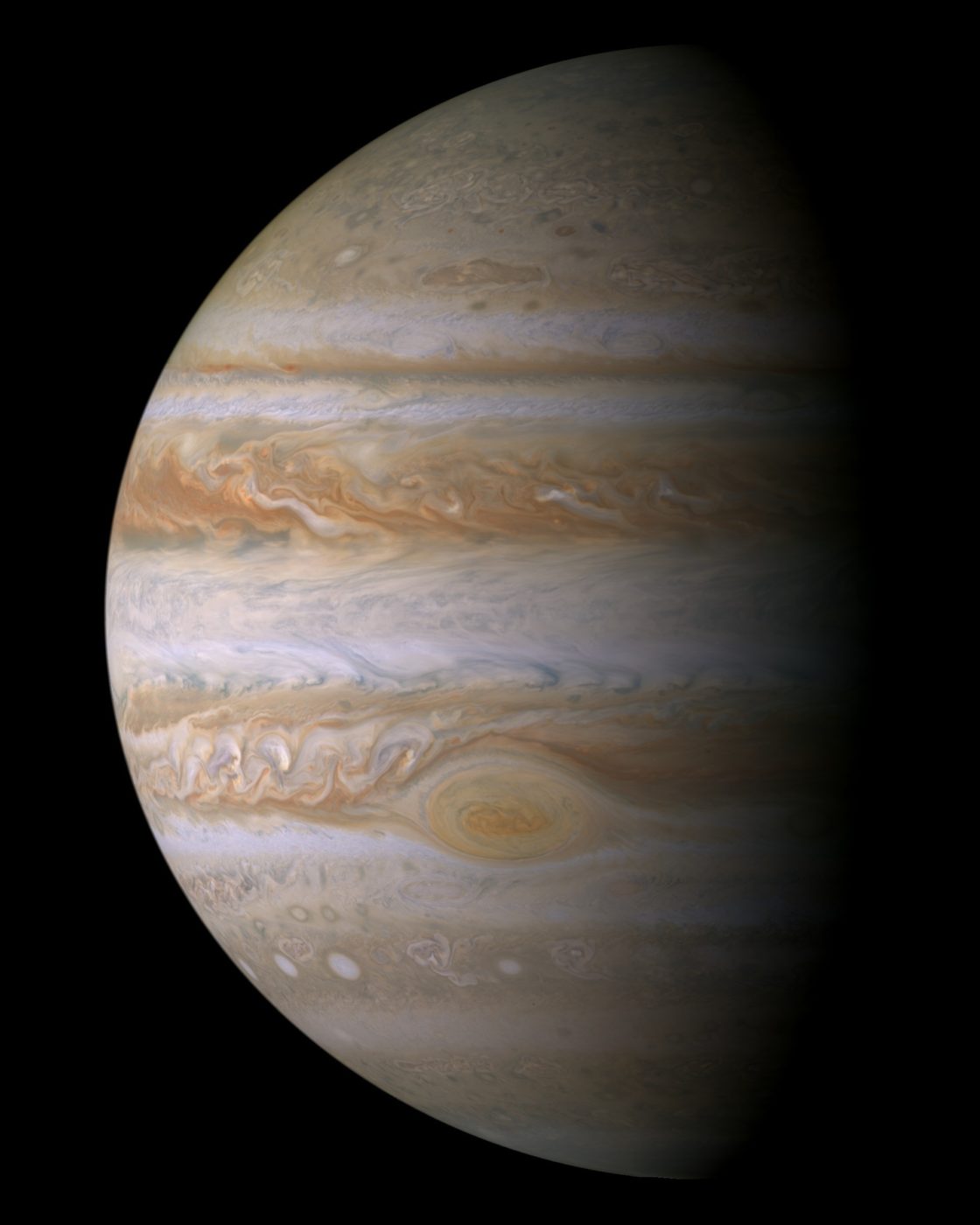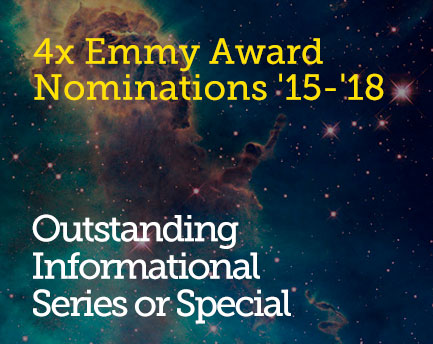October 10, 2016 8:00 pm
Does art inspire science, or vice versa? Find out Tuesday from Carolyn Porco and Sean Ono Lennon

The Greatest Jupiter Portrait. Credit: NASA/JPL/SSI.
Does art inspire science, or is it the other way around?
Tomorrow night, StarTalk All-Stars host Carolyn Porco tackles that very question with the help of her co-host, comedian Chuck Nice, and her friend and guest, musician and “Bad-ass Science Groupie” Sean Ono Lennon.
As the leader of the Cassini Imaging Team, which is responsible for creating some the most artistic and scientifically important photos of Saturn, Jupiter, Titan and Enceladus that we’ve ever seen, it is likely that Carolyn has pondered this question before.
It runs through the entire episode, mixed in with other subjects that interest Carolyn and Sean, or that come up as a result of the fan-submitted Cosmic Queries that Chuck throws at the pair, like concerns about the human impact on Earth during the Anthropocene Age, or the lack of civility and empathy on social media sites like Twitter.
As one might expect, Sean has plenty to say about the intersection of science and art, but there’s a story that Carolyn tells at the end of the episode about space artists that struck me as particularly intriguing.
It turns out that CICLOPS.org, the Cassini Imaging Team’s website which is filled with amazing photographs like “The Day the Earth Smiled” or “The Greatest Jupiter Portrait” (shown above) or “Bursting at the Seams,” the dramatic photo of the plumes spewing out from the south pole of Enceladus, there is also a section called the “Art Room.”
Here’s an excerpt from the description of the Art Room: “Ever since the mid-20th century, when Chesley Bonestell’s first austere depictions of Saturn seen from the surface of Titan became an enticing invitation to explore the unknown, generations of astronomical artists following in his stead have transported us through space with finely-crafted visions of alien worlds we could not otherwise have even imagined. Their captivating works — vivid, visceral and vicariously experiential — nourished in the viewer a powerful longing for adventure, and inspired many an early astronomer and engineer to dream of a life exploring the solar system… Here, on the pages of this Art Room, in recognition and with gratitude for the delight and inspiration we have enjoyed because of them, we are featuring the creative contributions of today’s space artists to this noble genre. We honor their soaring imaginations, technical skills, and artistic talents, as we celebrate, too, the special bond that joins them to us. For astronomical artists, like scientists, are romantics, dreamers, and explorers …. ever yearning, ever seeking, ever hopeful. We salute them, kindred souls, one and all.”
What a beautiful way to put it: “For astronomical artists, like scientists, are romantics, dreamers, and explorers …. ever yearning, ever seeking, ever hopeful.” And not exactly what you might expect from a website devoted to the photography of our solar system taken by Cassini, Voyager, Galileo and New Horizons.
There is one particular painting in the Art Room that Carolyn describes in tomorrow’s episode. It’s called “Coasting Above the Rings”, and it’s by the artist Michael Carroll. (You can visit his website here.) We’ve used it as the main image on our webpage for tomorrow’s episode, and you can see it here, too:

“Coasting Above the Rings.” Courtesy of the CICLOPS.org Saturn Space Art Gallery. Credit: © 2014 Michael Carroll. Visit his website at: https://www.facebook.com/LivingAmongGiants.
According to Carolyn, “The piece came about after Michael heard me describe this very scene in talks that I give on Cassini.” And, according to Michael “As an artist, I’ve always had a love/hate relationship with those rings. All those concentric circles are enough to drive anyone crazy! But their dazzling nature, as brought out by Cassini’s magical images, is just too much to pass up. For this view, I had to actually create a small sculpture–with help from Carolyn Porco–to duplicate the geometry of pointed shadows and curvilinear forms before I truly understood what those undulating fins looked like.” You can see read more about “Coasting Above the Rings” and download it for yourself here.
Clearly, an instance where science influenced art.
You can hear the whole story, along with much more, in Science and Art, with Carolyn Porco – StarTalk All-Stars Tuesday at 7pm EDT, right here on our website, or on iTunesPodcasts, Google Play Music, Stitcher, TuneIn and SoundCloud. (All-Access subscribers will be able to watch or listen to the episode ad-free, too.)
That’s it for now. Keep Looking Up!
–Jeffrey Simons
Get the most out of StarTalk!
Ad-Free Audio Downloads
Ad-Free Video Episodes
Stickers & Mugs
Live Streams with Neil
Priority Cosmic Queries
Early-Access Videos
Learn the Meaning of Life
...and much more

 Become a Patron
Become a Patron

